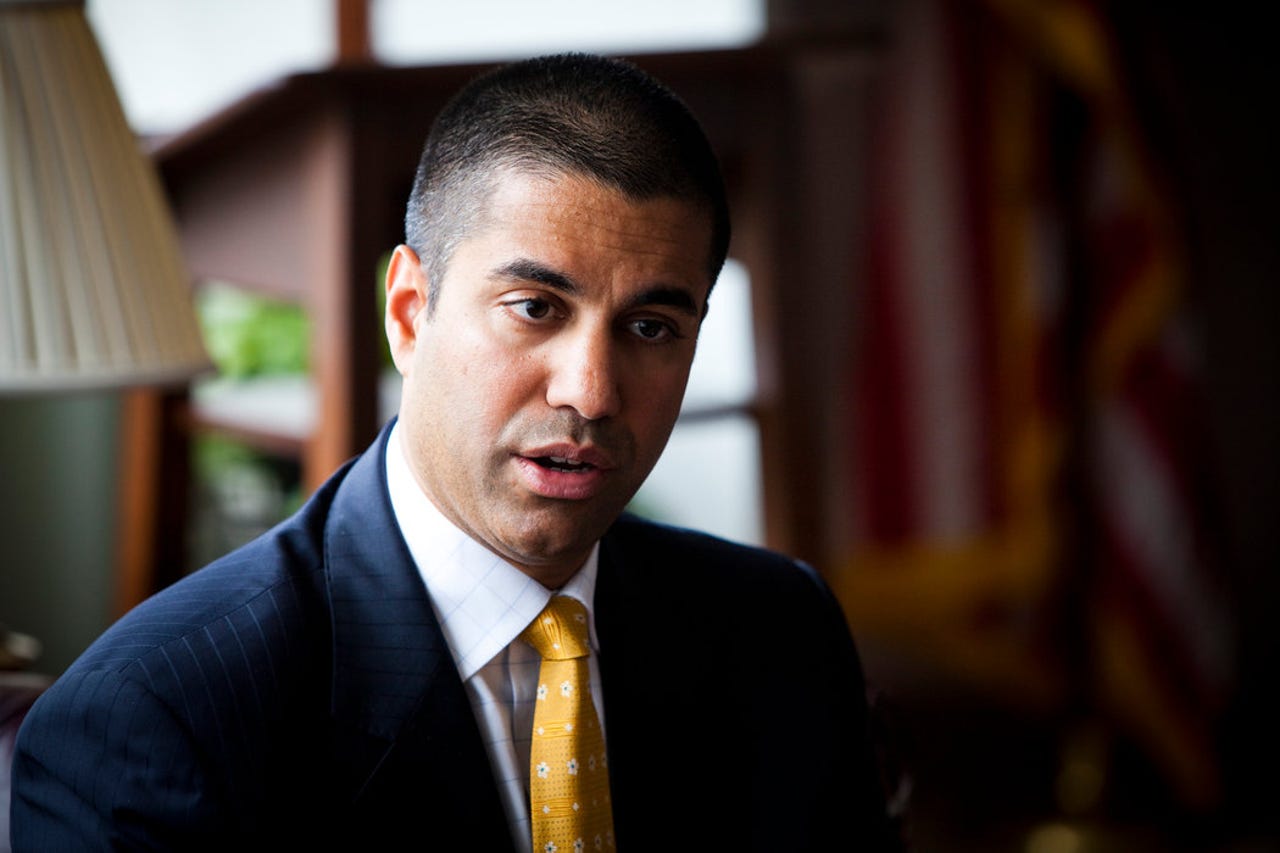US FCC to start work on reforms of social media legal protections


FCC chairman Ajit Pai.
US Federal Communications Commission (FCC) chairman Ajit Pai announced on Thursday that he will make reforms for section 230 of the Communications Decency Act 1996.
"As elected officials consider whether to change the law, the question remains: What does Section 230 currently mean? Many advance an overly broad interpretation that in some cases shields social media companies from consumer protection laws in a way that has no basis in the text of Section 230," Pai said in a statement.
"The Commission's General Counsel has informed me that the FCC has the legal authority to interpret Section 230. Consistent with this advice, I intend to move forward with a rulemaking to clarify its meaning."
The FCC received powers to regulate online content companies in May, when Trump signed an executive order that sought for the agency to do so. The executive order was signed days after Twitter inserted "get the facts about mail-in ballots" links below a series of tweets made by Trump.
Section 230 protects social media platforms from having legal responsibilities for publishing third-party content as long as they act "in good faith" in removing harmful content and providing fair access. If these platforms fail to pass the good faith test, however, they are deemed to be "publishers" and become responsible for all content they publish.
The law is currently facing scrutiny as some believe it gives social media companies too many freedoms in how they determine what content is allowed or blocked.
"Social media companies have a First Amendment right to free speech. But they do not have a First Amendment right to a special immunity denied to other media outlets, such as newspapers and broadcasters," Pai said.
The FCC's decision to reform section 230 comes shortly after the Republican-led Senate Judiciary Committee announced at a press briefing that it would take a vote next Tuesday on whether to issue subpoenas to compel Twitter CEO Jack Dorsey.
The subpoenas, if approved, would compel Dorsey to testify before the committee regarding Twitter's decision to block users from a New York Post article about Democratic presidential candidate Joe Biden's son.
"Never before have we seen active censorship of a major press publication with serious allegations of corruption of one of the two candidates for president," Senator Ted Cruz (R-Texas) said at the press briefing.
"This is election interference, and we are 19 days out from an election."
Pai's announcement also comes despite the Department of Justice (DoJ) publishing draft legislation to amend section 230 in September. Prior to unveiling the draft legislation, the DoJ had been reviewing the law for a year.
The DoJ's draft primarily focuses on clarifying languages in section 230 and replaces "vague terms" that could potentially be used to arbitrarily shield content moderation decisions from scrutiny, the DoJ said.
Related Coverage
US antitrust probe finds 'alarming pattern' of innovation-stifling practices
House Judiciary subcommittee report on Amazon, Apple, Facebook, and Google is calling for sweeping changes to restore competition in the digital economy, strengthen antitrust laws, and 'reinvigorate' antitrust enforcement.
Analysis: Trump order could turn social media platforms into publishers
Foremski's Take: An executive order from the White House challenges the legal protections for the content published by social media platforms such as Facebook, Twitter, YouTube, and Instagram
Supreme Court rejects lawsuit claiming Facebook provided terrorist forum support
The case accused Facebook of being materially responsible for user-generated terrorist content.
Justice Department proposes limits to online platforms' legal protections (CNET)
This comes in the wake of President Donald Trump's executive order targeting social media sites.